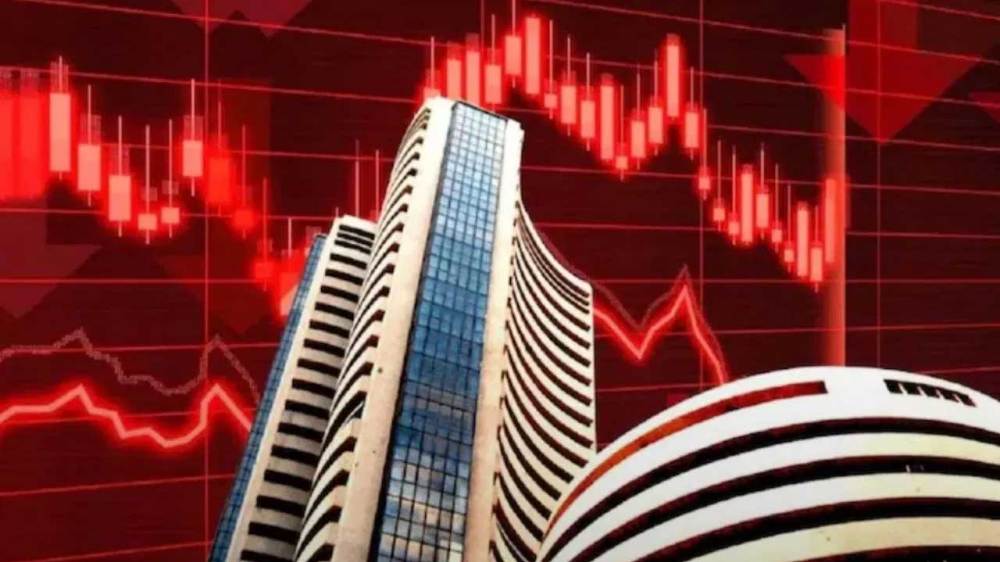On 2 April, President Donald Trump announced the US mutual tariff schemes which were more aggressive than expected. From April 5, 10% minimum tariff will be applicable on all imports in the US, while high tariffs will be imposed on countries with a major trade deficit.
New tariffs will affect America. The effective tariff rate on imports is estimated to increase from 2.3% to 20% – 25% in 2024, the highest in at least 100 years.
China has announced a counter tariff, in response to which the US has fixed a 34% tariff rate. Thus, the trade war between the US and China has taken a serious form.
Investors have suffered a major setback from the trade war. The possibility of recession in the US economy has increased and investors are worried about it. The US stock market has seen the biggest 2 -day decline in history. Since the swearing -in day of Donald Trump, the market has lost 11 trillion dollars so far. The US stock market has lost more than $ 5 trillion this week due to Trump’s tariff war. Fed Chairman Jerome Powell said on Friday that he feared President Donald Trump’s tariff will increase inflation and reduce development. India, Vietnam, are negotiating to avoid the results of Israel Trump’s tariffs. The United States will try to negotiate a trade agreement with these countries.
Long -term impact of trade war
The IMF, the World Bank and the WTO have provided the basis for global financial stability since World War II. This will make the institutions seriously weak. After the withdrawal of America from Bretton Woods institutions, China and European countries will pressurize for reform. Economic power determines rules and results. Nations will be forced to walk with the US-centered system or alternative Chinese economic blocks. In China and Russia, transactions will be rapidly in yuan and rubles. Alternative Payment Systems: Belgian -based Society for Worldwide Interbank Financial Telecommunication (SWIFT) messaging service is currently used worldwide. Now, in addition, these countries will have to force their business partners to use the fair transfer system (SPFS) of Russia’s financial messages and China’s Marchar Interbank Payment System (CIPS) platforms.
Regional Trade Agreement – Regional Agreements such as African continental free trade sector and the growing Mercosur block and BRICS of Latin America. The global financial system is at a decisive turn, and the decisions taken today will shape the economic landscape for the coming decades.
What will India do at this time?
India’s approach will vary with each country. Let’s talk about America first. India’s annual trade deficit with the US in the last decade is increasing – IT and Pharma companies earn a large part of their total revenue from the US. India will take some concrete steps to reduce this trade deficit. India will increase the purchase of defense equipment from the United States. India will buy fighter aircraft and other modern weapons from the United States. On the other hand, India will increase its energy purchase from the United States. India’s oil and gas imports increased from $ 1 billion in 2016 to about 20 billion dollars in 2022. In 2024 it has reached around $ 13.5 billion. I think India is now increasing the purchase of gas like LNG from America, which will grow very fast.
On the other hand, India will reduce duty on imported goods from America. For example, India reduced the tariff from 50% to 30% in the budget itself in the budget itself, which has reduced the prices of motorcycle exports to India from the US. Apart from the US, India will try to implement the free trade agreement with the United Arab Emirates, Australia and European Free Trade (EFTA). In this way India is improving its business relations with these countries.
Last week, the world markets saw a huge decline. The impact of this deduction will be felt in India in the coming weeks. There will be no surprise if the Nifty falls more than 500 points. When the Nifty reached around 21900 to 22300, buy. This is very long -term support and you will see too much shopping from local organizations here. Areas such as banking, housing finance and cement which are closely associated with the Indian economy will provide good security against the recession at this time. Increase investment in this field in your portfolio.
The Post Business: Long -term impact of trade war on stock markets and India’s strategy first appeared on News India Live | Breaking India News, The Indian Headline, India Express News, Fast India News.
